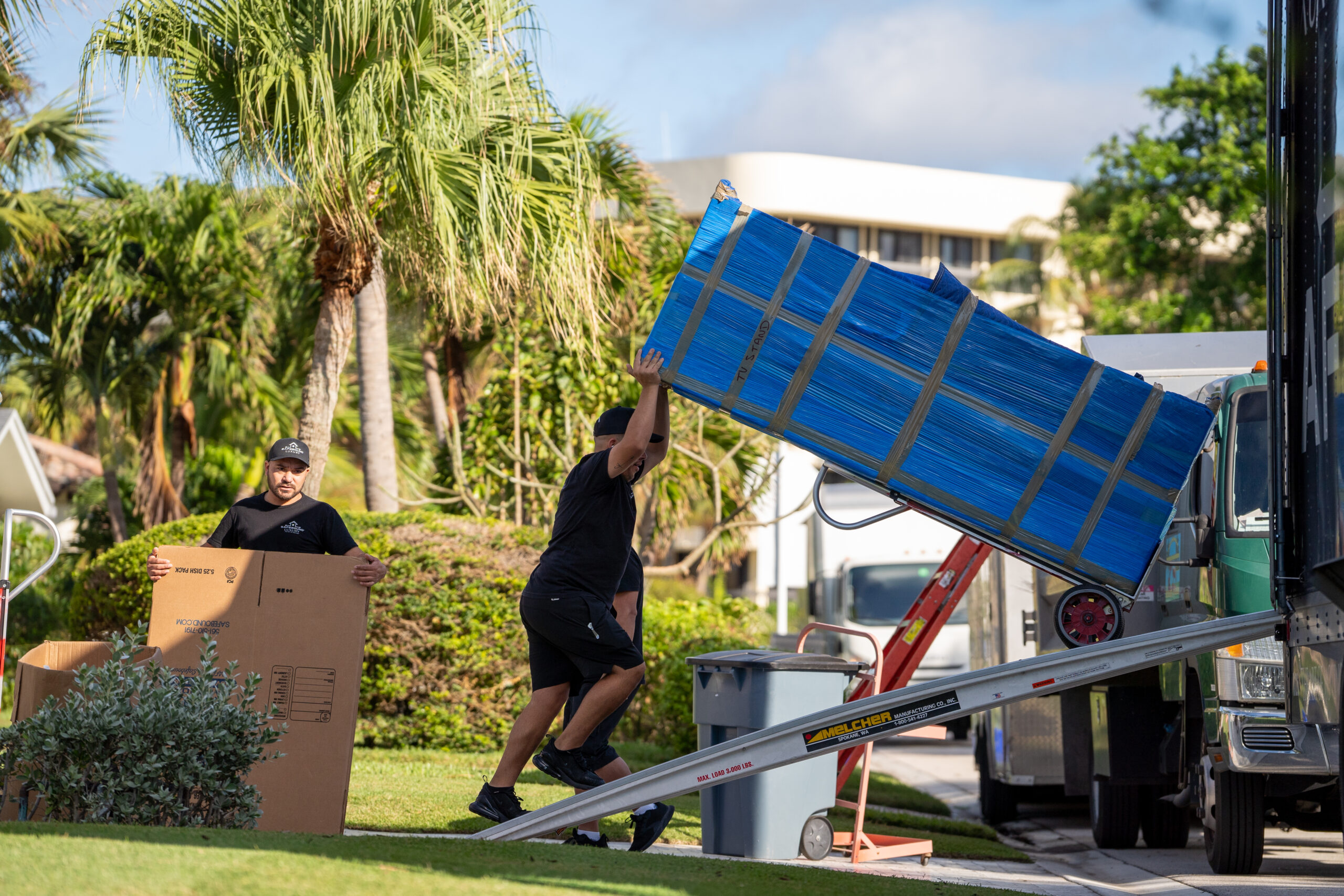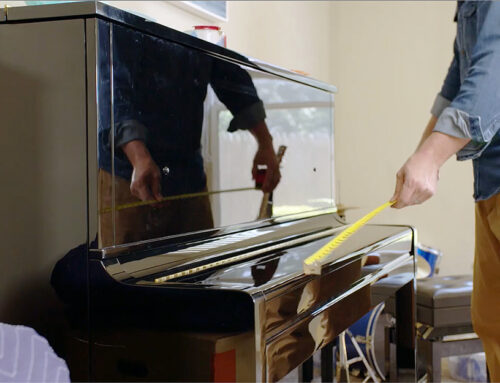Moving in the summer can be a daunting task. The combination of heat, humidity, and physical strain from moving heavy objects creates a unique set of challenges. However, with proper planning and strategies, you can overcome these obstacles and make your relocation a success. In this summer moving guide, we’ll look at some practical tips and advice for dealing with the challenges of summer moves. We’ll also look at the benefits and drawbacks of moving over the summer.
- Understanding the Summer Climate
- Pre-Move Preparation
- Packing Tips
- On Moving Day
- Post-Move Recovery
- Pros and Cons of Moving in the Summer
- Conclusion
Understanding The Summer Climate
The Heat
Summer temperatures in many parts of the United States can reach the 90s. This extreme heat can be exhausting and dangerous if proper precautions are not taken.
The Humidity
Humidity is another factor that influences summer moves. The high moisture content in the air can make it feel hotter than it is, causing increased perspiration and dehydration.
Physical Strain
Moving heavy items is a far cry from a walk in the park. In the sweltering summer heat, this physical activity can be even more difficult and taxing on the body.
Pre-Move Preparation
Choosing the Right Time
To avoid peak heat hours, plan your move for early in the morning or late in the evening. These times of day are cooler and more conducive to physical activity.
Hiring Professional Movers
Consider hiring a professional moving company, such as Safebound Moving & Storage. They have the experience and equipment to handle the heat, making your move much easier.
Hydration and Nutrition
Before you begin your workout, make sure you’re well-hydrated and have eaten a nutritious meal. Keeping your body fueled and hydrated is essential in the heat.
Packing Tips
Use Sturdy and Lightweight Boxes.
Choose sturdy but lightweight boxes to make lifting easier. To make boxes more manageable, avoid overpacking them.
Safeguard Belongings
Certain items are susceptible to heat. For sensitive items such as electronics, candles, and perishables, store them in climate-controlled environments.
Labels
Label your boxes clearly with their contents and room. This aids in organization and reduces time spent in the heat moving items around.
On Moving Day
Dress Appropriately
Wear light, breathable clothing and a hat to protect yourself from the sun. Use sunscreen to avoid sunburn
Stay Hydrated
Maintain a steady supply of water and take frequent hydration breaks. Avoid caffeine and alcohol, as they can cause dehydration.
Use Equipment Made for Moving
Dollies, hand trucks, and lifting straps can make moving heavy items easier and less physically demanding.
Take Lots of Breaks
Take short breaks in a cool, shaded area. This will help you avoid heat exhaustion and stay energized.
Monitor for Illnesses
Be aware of the symptoms of heat-related illnesses, such as heat exhaustion and heat stroke. If you or someone else is experiencing symptoms, seek medical attention right away.
Post-Move Recovery
Unpack Slowly
Don’t rush through unpacking everything at once. Take your time recovering and unpacking over a few days.
Get Hydrated and Stay Rested
Continue to drink water and get enough rest after the move to help your body recover.
Enjoy Your New Space
Once you’ve settled in, take some time to enjoy your new surroundings and congratulate yourself on successfully navigating the challenges of a summer move.
Pros and Cons of Moving in the Summer
Everyone seems to be packing their belongings and moving out during the sweltering summer months, which are considered the “peak season” for relocation. In fact, between Memorial Day and Labor Day weekend, 70% of all moves occur! But would you jump off a bridge if everyone else was doing it, as your mother would say? Is moving during the summer the best option for your situation? Why are so many people making this decision at this point in the year? Our friends at Safebound Moving & Storage have answered those questions in this article.
Advantages of Summer Relocation
There are numerous reasons why summer is such a popular season for moving families and local moving companies around the world; however, the most common ones are listed below.
Kids Out of School
Families with school-aged children benefit most from relocating during the summer. Moving is difficult enough for children even in the best of circumstances, but changing schools in the middle of the school year can be even more difficult. Before entering the K-12 battle royale, children who relocate during the summer can get to know their new neighborhood, meet their new neighbors, and possibly make some new friends.
Additional Assistance
For those same households, some extra free labor could be beneficial. When children are in school, and even older children in college, are not concerned with their GPAs and extracurricular activities, they may be more able and ready to assist with moving, prepping, and setting up a new home.
Longer Days
Moving during this time of year simply gives you more hours in the day because the sun sets later in the summer. If you’re short on time, those extra few hours of daylight may be exactly what you need to prepare and transfer everything without the weight crushing you like a fully loaded moving truck.
Clear Weather
The weather is perhaps the most obvious consideration, especially if you’re moving to or from a city like Chicago. Moving in the snow is the worst. Of course, there is the cold, but it is also significantly more dangerous, and the fear of slipping on ice, particularly when moving large boxes, may be justified. Summer is a better time to relocate because the weather is generally warmer and less precipitation-prone. Of course, summer can be exceedingly hot depending on where you live, but we’ll get to that shortly.
Disadvantages of Summer Relocation
It is a hectic moment. As we previously stated, the majority of movements occur during the summer. This suggests that the majority of movers have full schedules. Because there is less room for customization and flexibility, you must be confident and have a plan in place before hiring a mover. And if things don’t go as planned, you may have to use your imagination or spend more money to complete everything on time.
Expenses
The fundamental law of economics is supply and demand. Because there is more demand during the summer, movers may raise their rates, as they frequently do. This is why it’s critical to request an estimate from your mover as soon as possible to ensure you get a fair price and avoid being charged unexpectedly later.
Heatstroke and Other Illness
The weather, which initially appeared to be a benefit, may quickly turn out to be a disadvantage depending on where you live, where you’re moving, and the constantly changing weather forecast. The risk of overheating and potentially fatal heat stroke is a major deterrent, especially if you live in a hot climate like Florida or Arizona.
Items Overheating
Your belongings may also become extremely hot. When moving, you must consider more than just your own body temperature, as some items are extremely heat-sensitive. You should be extremely cautious about how hot you allow your belongings to become, especially if you are traveling with many delicate items, such as expensive paintings, musical instruments, or antique furniture. Of course, this is rarely an issue when hiring skilled movers.
In Conclusion
Moving in the summer can be both exciting and challenging. The warm weather often makes it easier to pack and move without worrying about inclement weather. However, the heat can also pose some challenges. It’s important to stay hydrated and take frequent breaks to avoid heat exhaustion. Start early in the day to take advantage of cooler temperatures, and try to schedule your move during the cooler parts of the day if possible. Keep in mind that the summer months are also peak moving season, so book your moving company Wellington well in advance to ensure availability. Consider packing essentials like sunscreen, hats, and water bottles in an easily accessible box to stay comfortable throughout the day. Lastly, be mindful of the heat’s impact on perishable items like food and plants, and make arrangements to transport them safely. With proper planning and precautions, moving in the summer can be a smooth and stress-free experience.





